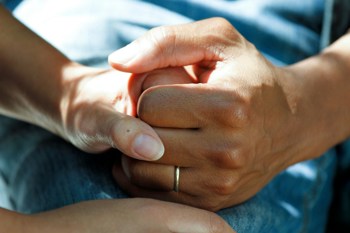Working together to identify the quickest and safest discharge options for patients
Monday, 8 January 2024

Wirral University Hospital's Transfer of Care Hub
In Cheshire and Merseyside, there are currently around 1,000 people in a hospital bed who are medically well enough to leave hospital - but facing delays to their discharge caused by difficulties in arranging the right care package for them to be able to go home.
Across the North West there are regularly 2,234 people in a hospital bed who no longer need the care a hospital provides. This figure has reached 2,400 at times and during winter last year was consistently above 2,200.
Transfer of Care Hubs aim to help address these delays, by enabling staff to identify the quickest and safest discharge options for their patients, working closely with teams from across other parts of the NHS, social care, housing and voluntary services – whether that patient can be cared for at home, or requires a short-term community bed-based rehabilitation, recovery or assessment of long-term needs that can’t be met within their own home.
One example of how well this coordinated model of discharge assessment and planning is working is at Wirral University Teaching Hospital NHS Foundation Trust. The Trust’s care transfer hub was set up on 1 July 2023 – and since then, has seen a marked reduction in the number of patients at the hospital with no criteria to reside (NCTR).
Impact to date
Early results from Wirral’s Transfer of Care Hub show the number of people in beds waiting to go home or into community care placements has reduced from around 250 to less than 100 a day.
This equates to freeing up around 150 more beds across the Trust’s Arrowe Park and Clatterbridge hospital sites, for other patients who really need them, such as those requiring urgent and emergency care.
Discharging people as soon as they are fit and well is not only vital to improving hospital flow, but also to improving outcomes for patients being discharged too, since evidence shows that prolonged stays in hospital can lead to an increased risk of falling, sleep deprivation or catching infections as well.